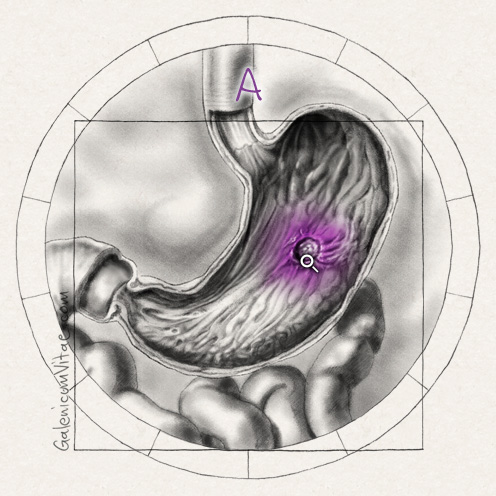Gastric or duodenal ulcers occur when acids that help us digest food damage the walls of the stomach or duodenum. The most common cause is infection with a bacterium called Helicobacter pylori. Another cause is the prolonged use of anti-inflammatory drugs such as acetylsalicylic acid or ibuprofen, as acidic substances are highly irritating to the mucosae.
The primary symptom is pain in the epigastrium (upper abdomen), with a postprandial predominance (after a meal) or at bedtime, as well as nausea, vomiting and weight loss.
The most serious complications of such ulcers are gastrointestinal bleeding (HDH) and bowel perforation causing peritonitis (irritation of the peritoneum by intestinal acid content and germs).

 Digestive
Digestive  Blood
Blood Cardiovascular
Cardiovascular Dermatology
Dermatology Genitourinary,
Genitourinary, Hormones
Hormones Infections
Infections Oncology and
Oncology and Musculo-skeletal
Musculo-skeletal Mental health and
Mental health and Parasites
Parasites Respiratory
Respiratory Senses
Senses Various
Various




